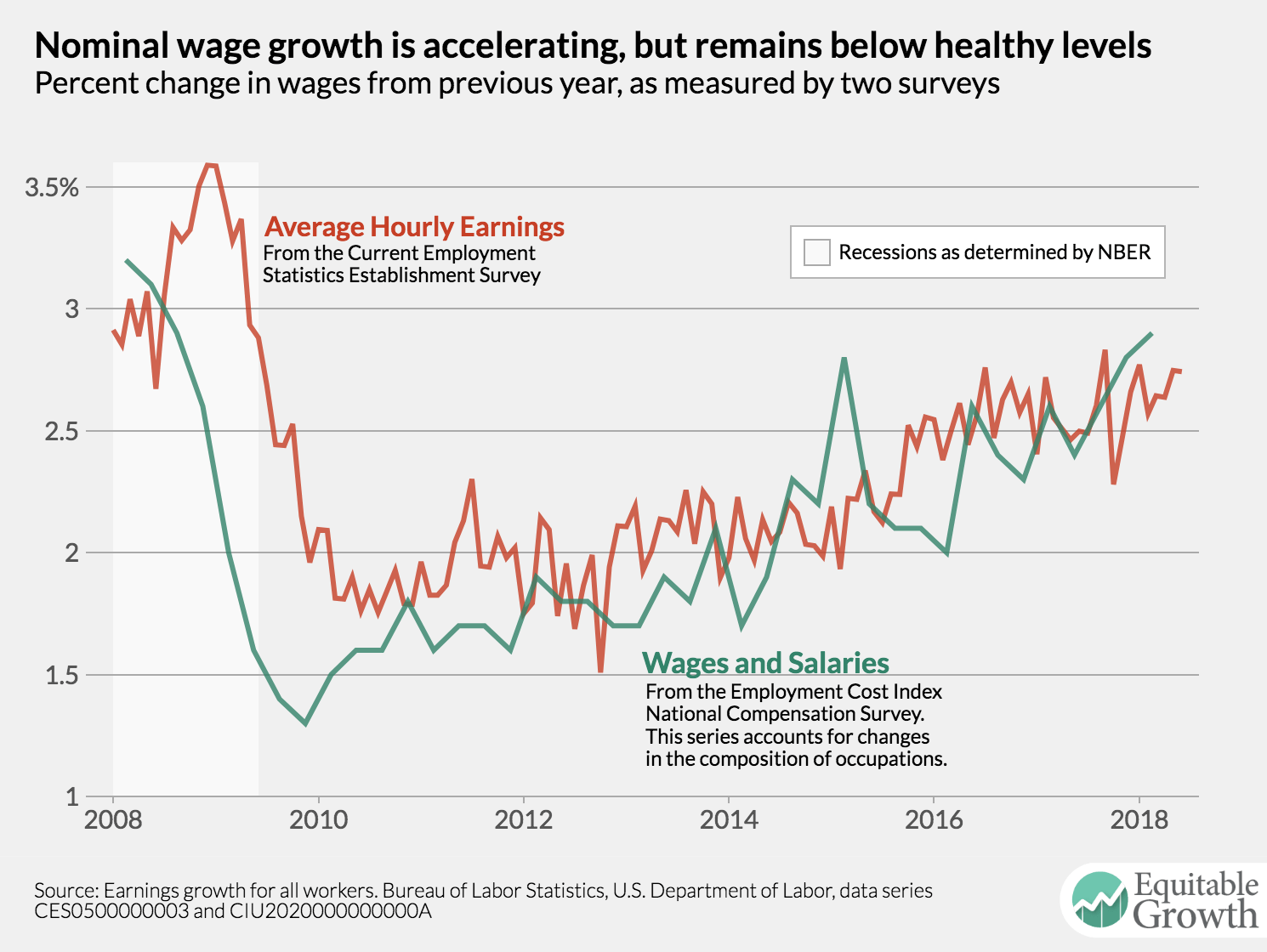Weekend reading: “workers and wages” edition
This is a weekly post we publish on Fridays with links to articles that touch on economic inequality and growth. The first section is a round-up of what Equitable Growth published this week and the second is the work we’re highlighting from elsewhere. We won’t be the first to share these articles, but we hope by taking a look back at the whole week, we can put them in context.
Equitable Growth round-up
Last week’s Supreme Court decision in Janus v. American Federation of State, County, and Municipal Employees is expected to decrease the size and budgets of public-sector unions and in turn decrease their effectiveness in collective bargaining for their members. Kate Bahn explains how the decline in worker power also could lead to an increase monopsony power, or the power of firms to set low wage levels.
Brad DeLong rounds up his latest worthy reads on equitable growth from both inside and outside of Equitable Growth.
Equitable Growth released its monthly Jobs Day Graphs. The graphs show wage growth remains positive but tepid and the employment rate of prime-age workers still trails its pre-recession peak despite increasing characterization of the U.S. labor market by the media as strong.
Links from around the web
An overview of recent economic research exploring the broader impact of unions on workers’ wages concludes that the continued erosion of workers’ bargaining power will further exacerbate wage stagnation. [ft]
Assumptions about who does or does not work in the United States and why have just as much insight to offer in to who does or does not support a Universal Basic Income program as does the economic rationale, Nathan Heller explains in a review of several new books about the concept. [new yorker]
Former U.S. Treasury Secretary Larry Summers argues that the idea of a universal job guarantee is a policy idea that’s worthy of serious consideration, but further thought about how to make the details work is needed before it could become reality. In other words—take the idea seriously but not literally. [wapo]
In the midst of the 2018 World Cup, University of California, Berkeley economist Gabriel Zucman points to Portuguese soccer star Christiano Ronaldo as an example of the prevalence of tax evasion by some of the world’s wealthiest people. Zucman argues that law and financial firms have made a lucrative business out of this evasion and should be sanctioned to decrease the prevalence of these practices. [nyt]
Eight years into the current U.S. economic recovery, the quits rate is almost back at its 2001 peak in the latest example pointed to as a metric of job market strength. [wsj]
Friday figure

Figure is from “Equitable Growth’s Jobs Day Graphs: June 2018 Report Edition”
